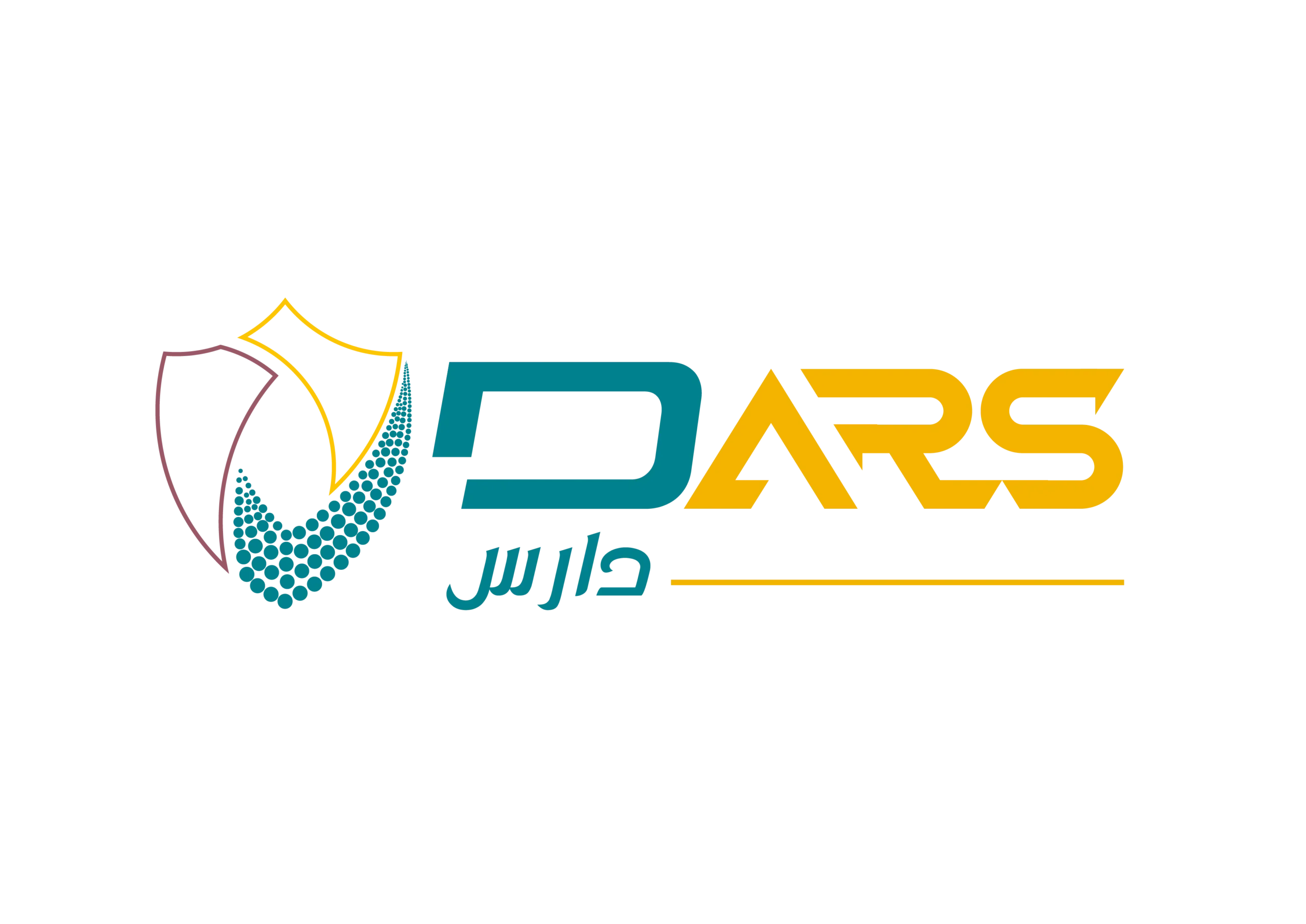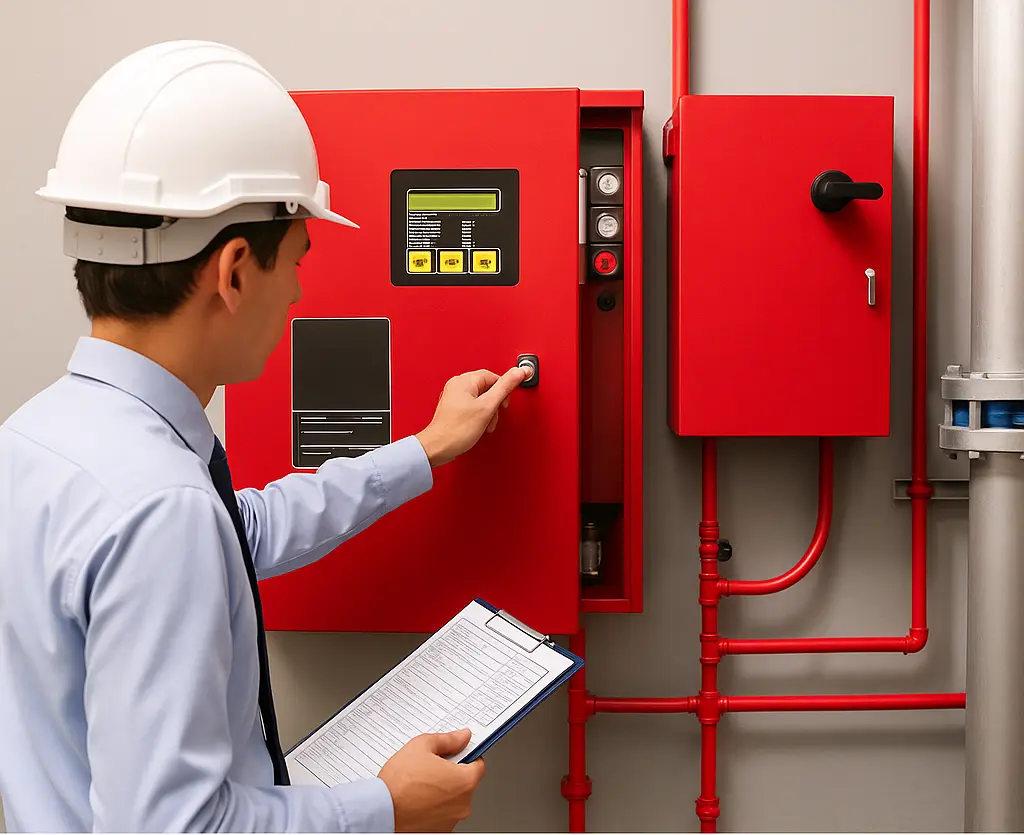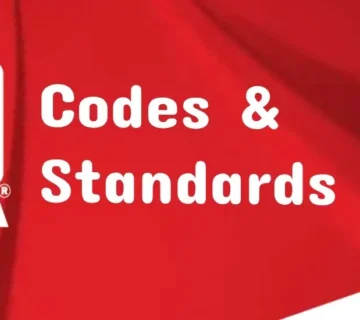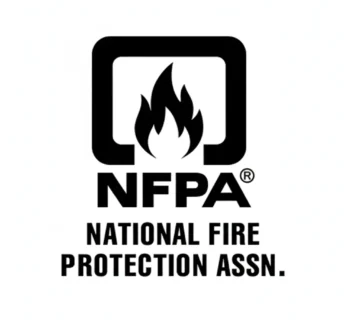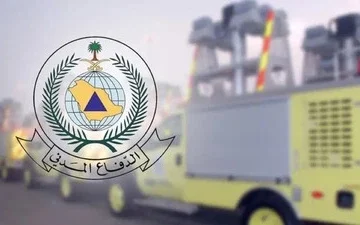What is Saudi Civil Defense and Why It Matters
Civil defense in Saudi Arabia represents far more than a regulatory authority. It is a national framework designed to protect lives, safeguard property, and ensure that both public and private facilities operate within the highest standards of fire and life safety. As urban development accelerates under Saudi Vision 2030, the role of civil defense has expanded into one of the most critical enablers of safe progress.
At its core, Saudi Civil Defense enforces regulatory safety standards that cover everything from the installation of fire protection systems to training communities in emergency preparedness. These requirements are not optional they are the foundation for sustainable, safe, and legally compliant operations across the Kingdom.
Understanding civil defense regulations is not just about avoiding penalties; it is about creating a culture of safety that protects people, property, and long-term investments.
What is the Role of Saudi Civil Defense?
Saudi Civil Defense operates as a comprehensive regulatory authority with a wide scope of responsibilities. While its primary mandate is public safety, its reach extends into regulation, enforcement, and public education.
Regulatory Authority Over Fire Safety and Emergency Preparedness
Civil Defense establishes rules that govern fire protection, evacuation procedures, and building resilience. Through building code standards and updated fire codes, it ensures every structure from commercial towers to residential complexes meets minimum safety thresholds. These measures are particularly critical as Saudi Arabia continues to develop large-scale projects such as NEOM and the Red Sea developments.
Inspection, Certification, and Approval of Fire Safety Equipment
No major facility can legally operate without the certification of installed fire safety equipment. From fire alarms to sprinkler systems, every piece of hardware requires official approval to confirm reliability in case of emergency. Civil Defense plays the role of both regulator and verifier, ensuring that systems perform when needed most.
Licensing and Oversight of Fire and Rescue Teams
Beyond infrastructure, Civil Defense licenses both public and private response teams. This ensures that responders meet professional training requirements and that safety inspection services are carried out by qualified personnel only.
Public Awareness Campaigns and Training Programs
Who Needs a Civil Defense License in Saudi Arabia and Why?
The licensing framework is one of the most visible aspects of civil defense in Saudi Arabia. Nearly every business that involves a physical premises, whether retail, industrial, or service-oriented, requires a Civil Defense license.
Businesses and Facilities Required to Obtain Civil Defense Licenses
Shopping malls, factories, hospitals, schools, and even office complexes must obtain a license before commencing operations. This requirement ensures that every occupied building has met safety baselines, from exits and alarms to fire suppression systems.
Types of Licenses and Their Coverage
Licenses vary depending on the type of facility. Industrial facilities require advanced approvals covering specialized fire systems due to high-risk machinery, while residential towers must demonstrate compliance with fire risk assessment protocols. Commercial properties often fall somewhere in between, with a combination of exit planning, alarms, and suppression technology.
Legal Consequences of Non-Compliance
Non-compliance carries steep consequences. Businesses can face fines, temporary suspension, or even permanent closure. In certain cases, legal accountability extends to owners and managers, highlighting the seriousness of civil defense obligations.
For businesses operating in Saudi Arabia, obtaining and maintaining a Civil Defense license is not merely administrative it is an operational requirement.
What Are the Key Fire Safety Requirements Under Civil Defense Regulations?
Civil Defense regulations are detailed, but several core requirements apply to nearly all types of facilities.
Mandatory Fire Alarm and Firefighting System Installations
Every facility must install fire alarms and fire protection systems capable of detecting and responding to threats rapidly. For large complexes, this may include sprinklers, smoke detectors, and integrated monitoring systems.
Emergency Exits, Signage, and Evacuation Plans
Clear evacuation routes and illuminated exit signage are critical components of safety. Regulations mandate not just their existence, but also their accessibility and visibility under various conditions. Facilities must also have evacuation plans tailored to building design and occupancy type.
Regular Maintenance and Inspection of Fire Safety Equipment
Civil Defense regulations emphasize that safety does not end with installation. Routine maintenance and safety inspection services are required to ensure equipment reliability. Inspections often uncover issues like expired extinguishers or malfunctioning alarms that could compromise response times in emergencies.
Structural Safety and Fire-Resistant Materials
Beyond systems and equipment, the very materials used in construction come under scrutiny. Regulations require the use of fire-resistant materials in key structural areas, ensuring that buildings can withstand and contain fire long enough to protect occupants.
How to Obtain and Renew a Civil Defense License?
The process of obtaining or renewing a Civil Defense license can appear complex, but it is designed to maintain consistent safety across all facilities.
Required Documents and Application Process
Applicants typically submit building drawings, safety system specifications, and compliance documentation. These materials allow Civil Defense to evaluate whether the facility meets regulatory safety standards before granting approval.
Compliance Audits and Inspections
Before a license is granted, auditors conduct physical inspections of the premises. They verify the presence and performance of fire safety equipment, the accessibility of exits, and the accuracy of emergency plans.
Renewal Timelines and Ongoing Compliance Checks
Licenses are not permanent. Renewal cycles require facilities to undergo fresh inspections, ensuring ongoing compliance with evolving regulations. This dynamic approach keeps safety standards aligned with technological advances and updated codes.
Role of Certified Consultants and Service Providers
Businesses often rely on security and safety contractors or consultants to manage the licensing process. These professionals bring expertise in navigating regulatory requirements, performing fire risk assessments, and implementing compliant systems.
What Are the Latest Regulatory Updates and Trends for 2025?
The regulatory environment for civil defense in Saudi Arabia is constantly evolving, and 2025 marks a significant milestone. The Ministry of Municipal and Rural Affairs and Housing, in partnership with Civil Defense, has introduced enhanced standards designed to match global benchmarks while reflecting local needs. These updates are part of a broader strategy to ensure that the Kingdom’s rapid development remains safe, sustainable, and resilient.
One of the most important developments is the integration of the Saudi Building Code (SBC) and the Saudi Fire Code (SFC). These frameworks not only strengthen construction requirements but also unify fire safety practices across diverse sectors, ensuring consistency in compliance. For developers working on giga-projects, the codes are more than technical manuals; they are strategic tools for building world-class, future-proof infrastructure.
Another notable trend is the growing adoption of performance-based fire safety solutions. Instead of relying solely on prescriptive rules, projects now have the flexibility to demonstrate safety through modeling, simulation, and advanced risk analysis. This approach is particularly valuable for large-scale developments such as airports, stadiums, and urban megacities where standard solutions may not fully apply. It demonstrates Saudi Arabia’s commitment to blending innovation with robust safety compliance.
Integration of International Standards with Local Regulations
As part of its modernization strategy, Saudi Civil Defense has been aligning its safety codes with internationally recognized standards such as NFPA guidelines and ISO certifications. This integration serves a dual purpose. On one hand, it ensures that multinational investors and contractors can operate under familiar safety frameworks. On the other, it raises the quality baseline across the Kingdom, creating a competitive edge for Saudi projects in the global market.
This move also builds trust with international stakeholders, signaling that the Kingdom’s infrastructure is backed by world-class safety systems. For companies like DarAlhmaya, which specialize in implementing fire protection systems that comply with both local and global codes, this creates opportunities to bridge knowledge gaps and deliver advanced solutions tailored to Saudi conditions.
Increased Focus on Training, Certifications, and Technology Adoption
Technology and training have emerged as central pillars of Saudi Civil Defense strategy. The 2025 updates emphasize the importance of smart monitoring systems, digital reporting, and integrated safety management platforms. Facilities are now encouraged to adopt IoT-enabled detectors, remote alarm systems, and real-time compliance dashboards. These innovations not only improve safety outcomes but also streamline the inspection and licensing process.
Equally important is the focus on professional training and certification. Civil Defense requires that staff responsible for safety management undergo periodic training, ensuring they remain up to date with changing requirements. Programs cover everything from emergency preparedness drills to advanced firefighting techniques, equipping teams to handle both routine risks and extraordinary incidents.
What Common Challenges Do Businesses Face with Civil Defense Compliance?
While the regulatory framework is designed to safeguard society, many businesses encounter challenges when trying to remain compliant. The complexity of rules, combined with rapid updates, can create uncertainty and additional costs for organizations.
One of the most pressing challenges is the pace of regulatory evolution. With the integration of new codes and international standards, businesses often struggle to interpret requirements accurately. This issue is particularly evident among small and medium enterprises that may lack dedicated compliance departments. Without expert guidance, these companies risk delays in licensing or costly penalties.
Coordination also presents a major obstacle. Construction projects typically involve contractors, consultants, and regulatory bodies, all of whom must collaborate to meet compliance benchmarks. Miscommunication or misalignment between these parties can slow down approvals and create gaps in safety coverage. For this reason, many organizations rely on security and safety contractors with specialized expertise in navigating the system efficiently.
Training Staff and Maintaining a Safety Culture
Even when the infrastructure meets all technical requirements, businesses face the challenge of embedding safety awareness into daily operations. Civil Defense regulations stress the importance of creating a safety-first culture, but this requires ongoing investment in staff training. Employees must not only know evacuation routes and firefighting procedures but also practice them through regular drills.
Maintaining this culture across large organizations can be difficult. High staff turnover, budget constraints, and competing operational priorities often limit the focus on training. Yet, neglecting this area poses significant risks, as even the most advanced systems are only effective when people are prepared to use them. DarAlhmaya emphasizes this principle by supporting clients with tailored training programs that align with both regulatory safety standards and practical business needs.
Managing the Costs of Compliance and Retrofitting Older Buildings
Another significant challenge lies in cost management. For new developments, compliance can be built into the design stage, often making it more cost-effective. However, older buildings frequently require retrofitting to meet modern standards. This may involve upgrading fire alarms, reinforcing structural elements with fire-resistant materials, or installing entirely new suppression systems.
These upgrades can be expensive, and businesses sometimes delay them to manage budgets. Unfortunately, postponing compliance often leads to higher risks and potential legal consequences. Civil Defense authorities take a strict stance on retrofitting, requiring businesses to upgrade within set timelines or face penalties.
For businesses looking to balance safety and cost, partnering with experienced service providers becomes critical. Companies like DarAlhmaya offer practical solutions that optimize resources while ensuring compliance, helping organizations stay ahead of both financial and regulatory risks.
The Strategic Importance of Proactive Compliance
Proactive compliance with civil defense regulations is more than a legal necessity; it is a strategic advantage. Businesses that prioritize safety from the outset benefit from smoother licensing processes, fewer operational interruptions, and stronger reputations in the market.
In industries such as manufacturing, healthcare, and hospitality, compliance also translates into customer trust. Clients, patients, and visitors are more likely to engage with organizations that clearly prioritize their well-being. Moreover, in the competitive landscape of Saudi Arabia’s giga-projects, contractors and operators that consistently meet safety compliance standards gain a significant edge in securing new contracts.
For DarAlhmaya, this is an area where expertise meets impact. By applying safety inspection services and developing long-term compliance frameworks, the company helps clients turn safety into a driver of credibility and growth.
Practical Strategies for Achieving Civil Defense Compliance
For many organizations, the complexity of Saudi Civil Defense regulations can feel overwhelming. Yet compliance is achievable when approached with a structured strategy. The first step is early planning. Businesses that integrate safety measures at the design stage of a project are better positioned to secure approvals quickly. This proactive approach minimizes costly redesigns and ensures alignment with building code standards from the very beginning.
The second strategy is ongoing monitoring. Safety is not a one-time checklist; it is a continuous process. Facilities must routinely inspect their fire protection systems, review evacuation protocols, and update training schedules. By treating compliance as a living system rather than a static requirement, organizations reduce the risk of lapses that could trigger penalties.
Finally, leveraging external expertise is essential. Experienced security and safety contractors bring technical knowledge and regulatory insights that can shorten approval timelines and enhance safety outcomes. These professionals act as partners, not just vendors, helping businesses maintain compliance while focusing on core operations.
The Role of Professional Partners in Civil Defense Success
Partnering with experts such as DarAlhmaya provides businesses with a significant advantage. As a trusted provider in the Saudi market, DarAlhmaya combines deep knowledge of regulatory safety standards with hands-on experience in implementing compliant solutions. This dual expertise allows the company to support clients across every stage of the compliance journey from initial fire risk assessment to system installation, inspection, and license renewal.
One of DarAlhmaya’s strengths lies in its ability to tailor solutions to the specific requirements of each facility. A hospital, for example, demands a very different fire safety strategy than a logistics warehouse. By designing systems that address these unique risks, DarAlhmaya ensures that businesses are not just compliant but also genuinely protected.
Moreover, professional partners help organizations stay ahead of change. As regulations evolve, having a dedicated team monitoring updates and advising on necessary adjustments saves businesses from last-minute compliance crises. This proactive guidance transforms compliance from a reactive burden into a strategic asset.
Civil Defense and Saudi Vision 2030
Civil defense plays a foundational role in the Kingdom’s broader transformation agenda. Vision 2030 is not only about economic diversification and mega-projects; it is also about creating safe, sustainable, and resilient communities. Without strong civil defense regulations and enforcement, the ambitious growth targets of the Kingdom would face significant risks.
Projects such as NEOM, Qiddiya, and the Red Sea Development require advanced fire and safety systems that meet international benchmarks while respecting local requirements. By embedding safety compliance at the heart of these developments, Saudi Arabia demonstrates its commitment to global best practices. This also reassures international investors and partners that their contributions are safeguarded by robust frameworks.
For companies like DarAlhmaya, Vision 2030 provides both an opportunity and a responsibility. Their role extends beyond providing fire safety equipment; they contribute to shaping the safety culture that underpins national progress.
Building a Culture of Safety Beyond Regulations
While regulations provide the legal framework, true safety requires a cultural shift. A business that views civil defense purely as a legal necessity may achieve compliance on paper but still lack readiness in practice. The most resilient organizations are those that integrate safety into daily decision-making, operations, and employee behavior.
Creating this culture involves consistent leadership messaging, regular training, and reinforcement of safety values. It also requires transparency sharing lessons from drills, openly discussing hazards, and encouraging staff to report issues without fear of blame. When safety becomes part of the organizational identity, compliance flows naturally.
DarAlhmaya supports this cultural shift by helping clients not only meet technical requirements but also embed awareness and accountability at all levels. This ensures that the benefits of compliance extend far beyond passing an inspection.
The Economic and Reputational Value of Compliance
Compliance with Civil Defense standards is not just about avoiding fines; it is about protecting brand reputation and operational continuity. In a market as competitive as Saudi Arabia, businesses that can demonstrate robust safety measures gain a trust advantage. Clients, customers, and partners are more likely to engage with organizations that clearly prioritize their well-being.
Economically, proactive compliance reduces long-term costs. Facilities that maintain systems and conduct regular inspections are less likely to face catastrophic losses from fires or accidents. Insurance premiums can also be positively influenced by strong safety records, providing an additional financial incentive.
Reputationally, safety leadership creates differentiation. Companies that exceed minimum requirements and champion safety as part of their brand identity are seen as reliable, responsible, and future-oriented.
Civil Defense Compliance in Practice: A Forward-Looking Perspective
Looking ahead, civil defense in Saudi Arabia will continue to evolve as technology, urbanization, and international cooperation reshape the landscape. Businesses that embrace this evolution will not only meet requirements but also position themselves as leaders in safety and resilience.
Artificial intelligence, predictive analytics, and smart monitoring are already being integrated into compliance frameworks. These technologies will soon allow organizations to anticipate risks before they materialize, transforming fire and safety management from reactive to predictive. Civil Defense regulations are expected to adapt to these innovations, further raising the standard for compliance.
For organizations, this future means that compliance must be seen as a journey rather than a destination. Continuous investment in systems, training, and partnerships will remain essential. The companies that thrive will be those that view civil defense as part of their growth strategy, not just a regulatory hurdle.
Conclusion: Civil Defense as a Foundation for Safety and Growth
Civil defense in Saudi Arabia is far more than a set of rules; it is a framework that enables sustainable development, protects lives, and builds trust. From the licensing process to the adoption of fire protection systems, from hazard prevention initiatives to the integration of global codes, every aspect contributes to a safer, more resilient Kingdom.
For businesses, compliance is both a responsibility and an opportunity. By working with professional partners like DarAlhmaya, organizations can navigate complexity with confidence, transforming safety obligations into long-term value.
As Saudi Arabia advances toward its Vision 2030 goals, civil defense will remain at the heart of progress. It ensures that growth is not just ambitious but also secure, enabling the Kingdom to build a future where prosperity and safety stand side by side.
